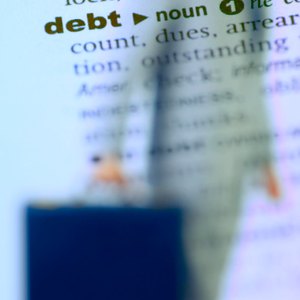
If you file for bankruptcy but the case is dismissed, it will show up on your credit report for seven to 10 years from the date of the filing. The reporting period for Chapter 7 is 10 years and seven years for Chapter 13, but could be as long as 10 years. The effect on credit varies from debtor to debtor.
Dismissal
The court can initiate a dismissal of your bankruptcy case if you fail to fill out required forms, provide misleading information or if you miss a payment under the wage earnings plan. Your petition for bankruptcy can also be dismissed if you change your mind about filing. From a legal standpoint, if your bankruptcy is dismissed, it is treated as though you never filed. However, the automatic stay of protection barring creditors from pursuing collections efforts against you is removed.
Effects
The federal Fair Credit Reporting Act regulates how your consumer information is collected and shared, including your credit report. It provides that bankruptcy information can remain on your credit report for up 10 years. So, even if your bankruptcy was dismissed, creditors will still be able to see this information when pulling up your credit profile, which could impact your ability to borrow in the near term.
Reporting
The credit reporting agencies treat a chapter 7 dismissal and discharge the same. Equifax, Experian, and Transunion report chapter 7 dismissals and discharges for 10 years. A chapter 13 dismissal is treated slightly different. Experian and Transunion report chapter 13 dismissals and discharges for seven years. However, Equifax reports a chapter 13 discharge for seven years, but reports a dismissal for ten years.
Creditors
Since a bankruptcy dismissal is reported, it will have a negative affect on your credit score. How much weight given to a dismissal versus a discharge may vary across lenders. It is up to your lender whether it wants to qualify you for a loan or not. A bankruptcy dismissal will raise red flags, so be prepared to explain the details to your lender.
Insight
If you are concerned about the impact of a bankruptcy dismissal on your credit score, there are two immediate actions you can take. You can start by contacting your creditors to inquire about the possibility of settling with them. You can also obtain a secured credit card. Use this card to make manageable purchases that can be paid off quickly. Your payment history is a large component of your overall credit score.
References
- Bankruptcy Dismissal
- Transunion Credit Report Training Guide
- Length of Credit History
- Department of Justice. "U.S. Trustee Program." Accessed July 26, 2020.
- United States Courts. "Chapter 7 - Bankruptcy Basics." Accessed July 26, 2020.
- United States Courts. "Chapter 11 - Bankruptcy Basics." Accessed July 26, 2020.
- United States Courts. "Chapter 13 Bankruptcy." Accessed July 26, 2020.
- United States Courts. "Chapter 9 - Bankruptcy Basics." Accessed July 26, 2020.
- United States Code. "Chapter 11 — Reorganization — Historical and Revision Notes." Accessed July 26, 2020.
- United States Courts. "Chapter 12 - Bankruptcy Basics." Accessed July 26, 2020.
- United States Courts. "Chapter 15 - Bankruptcy Basics." Accessed July 26, 2020.
- United States Courts. "Discharge in Bankruptcy - Bankruptcy Basics." Accessed July 26, 2020.
- Consumer Financial Protection Bureau. "I Filed for Bankruptcy. How Long Will That Appear on Credit Reports?" Accessed July 26, 2020.

